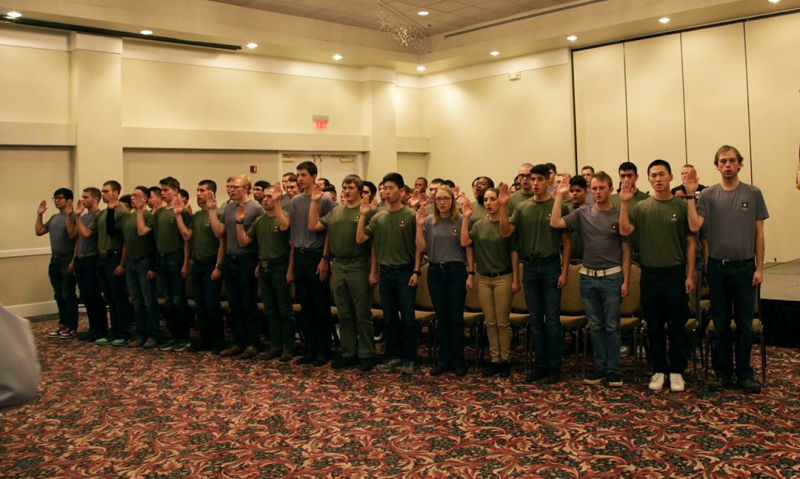
Department Spotlight: Colorado helps host delayed entry ceremony
Editor’s note: This is a weekly series of Department Spotlight stories featuring unique programs and initiatives of departments throughout The American Legion. Department adjutants are invited to recommend subjects for their departments by emailing magazine@legion.org.
An agreement between the U.S. Army Recruiting Command in Denver and The American Legion Department of Colorado has been a boon to both sides over the past decade.
Each year since the 2008 agreement, the department’s mid-winter conference has hosted a ceremony in which participants in the Army’s Delayed Entry Program take their oath of enlistment.
“It’s their event, we just host it,” said Colorado Department Adjutant Pat Smith. “We’ve been doing it successfully for 10 years.”
The Delayed Entry Program gives recruits the opportunity to delay reporting for duty up to one year after enlistment. It allows the new soldiers to complete high school or college courses and to get their affairs in order before reporting for basic training.
While participants in this year’s ceremony were all from Colorado, previous years have included recruits from Nebraska, Kansas, New Mexico and Wyoming. The ceremony has involved as many as 180 recruits at a time, Smith said, with their families joining them for the proud moment.
The ceremony has paid off for the Legion as a membership tool, Smith said.
“We know some of the people (who participated in the ceremony) have come back and signed up for the Legion,” Smith said. And in some years, the ceremony has included active troops coming in for their advancement ceremony, with some of them joining the Legion.
Smith said the agreement can benefit other departments and individual posts as well.
“I think more departments need to do it,” he said, noting that last year’s ceremony brought some 700 people to the conference for a standing-room-only event.
“We have taken it to a couple of posts, not necessarily for the Delayed Entry Program,” Smith said. “Recruiting command will work with any of our posts. … There’s a lot of potential for local posts (to interact with new troops).”
And the arrangement has paid off in other ways. Smith noted that the recruiting command’s annual ball was running into attendance issues because some of the younger recruiters couldn’t attend because of their children. So the department put in money for a babysitting service to watch the kids during the ball.
